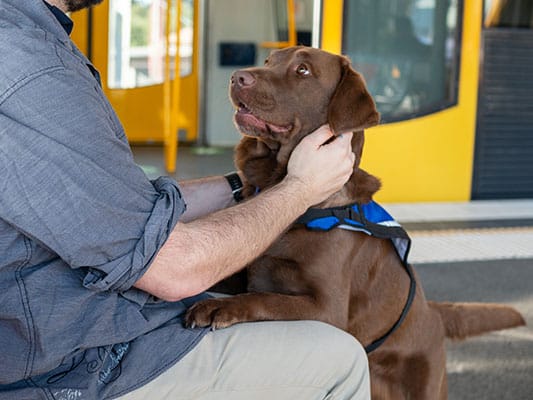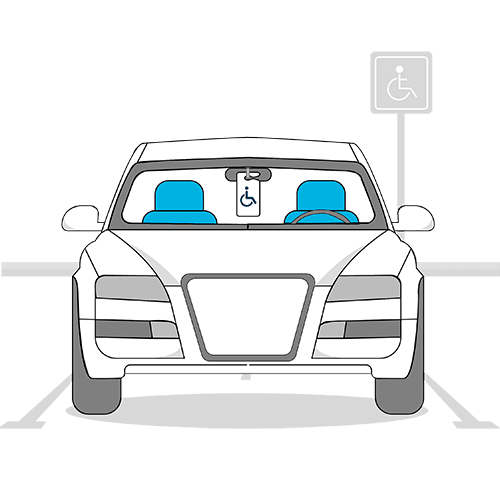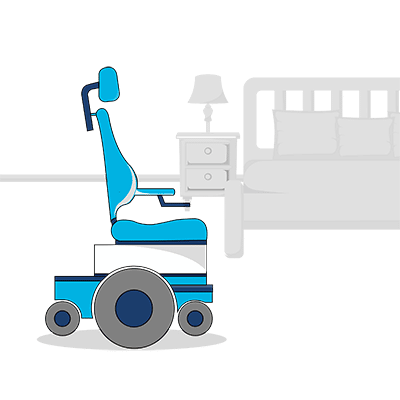Do Autism Assistance Dogs really make a difference to the lives of people with autism spectrum disorder? If so, how? In honour of National Puppy Day coming up on 23 March, and given Blue Badge insures Assistance Dogs and pets alike, we wanted to acknowledge everything these furry heroes can do. And yes, that certainly does include helping people living with autism.
Service Dogs can be used in a huge variety of ways to help people living with disability to improve their level of independence. Most commonly, they act as ‘seeing eye’ dogs (Guide Dogs) for people with visual impairments. However, they can also be Assistance Dogs that help with autism, epilepsy, diabetes, mobility issues and more.
Here we explore exactly how a fluffy companion and colleague can be of benefit to those with autism.
In this article
What is autism spectrum disorder?
Autism, or autism spectrum disorder (ASD), is a developmental disorder of the brain. It can cause difficulties with communication and behaviour, among other areas. Broadly speaking, autism spectrum disorder is characterised by challenges with social skills, repetitive behaviours, speech, nonverbal communication and sensory sensitivity.
Until somewhat recently, Asperger’s and autism were considered separate disorders. However, Asperger’s is now not seen as its own condition and people with it are described as being on the autism spectrum.
The prevalence of autism in Australia has increased dramatically over the last couple of decades. However, this is at least partly because many people went undiagnosed in former years. In fact, although around 1 in 700 people in Australia are now diagnosed as having autism, the true number is probably higher. This is because there are likely quite a large number of adults (and children) who remain undiagnosed.
Autism in girls can also be harder to diagnose than in boys, which may add to the problem of undiagnosed Australians who experience autism spectrum disorder.
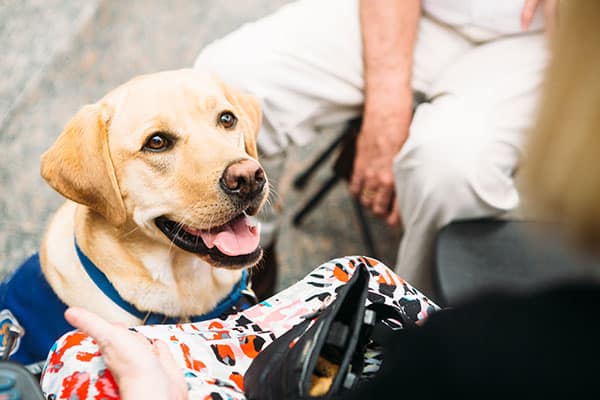
How do Assistance Dogs help people with autism spectrum disorder?
Assistance dogs for autism spectrum disorder can be beneficial for their handlers – of any age – in a variety of ways. They provide emotional and social support, for a start, which can be especially helpful for children and young people with needs.
On top of their “official” duties, some of the advantages of using Assistance Dogs for autism support include their ability to help with companionship, sleep, and stability for the entire household.
Once placed with their new Assistance Dog, children with autism spectrum disorder can make remarkable improvements across their social, verbal and cognitive skills. They develop the ability to learn routines and structures that aid development, communication and community interaction.
Adults also advantage from this wonderful support, however because they are past their formative years it’s usually to a lesser extent than children with such assistance. Still, they too experience a wide variety of benefits.
How Autism Assistance Dogs help
Assistance dogs for autism support can help improve:
- Communication skills
- Confidence and independence
- Empathy to new situations
- Emotional understanding
- Social relationships
- Tactile perception
- Anxiety
- Routine and stability
- Environmental understanding
- Self-esteem
- Family relationships
- Behaviour patterns
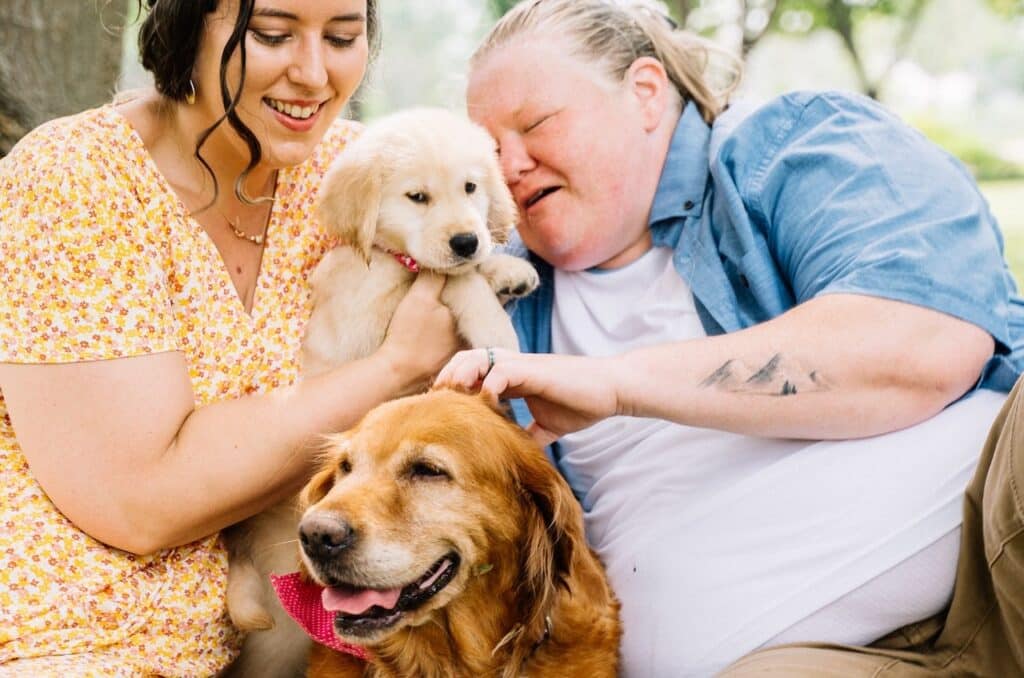
What exactly do Autism Assistance Dogs do?
All Assistance Dogs are specially trained to help the person living with disability in specific ways. They’re there to improve lives – although arguably, most dogs do that in some ways! However, Assistance Dogs are carefully trained to help as much as possible.
For instance, an Assistance Dog paired with a person who uses a wheelchair would have different skills to an Assistance Dog whose primary function is to support someone living with autism spectrum disorder.
Tracking and grounding
Typically, these dogs have very extensive and unique training. For instance, children with autism spectrum disorder may be inclined towards impulsive behaviour and can run away or get lost in public quite easily.
Assistance Dogs helping with autism are usually trained in tracking, which helps the dog locate a child who may have run off or hidden. They can also be physically tethered to a child to act as an “anchor” in some situations.
Sensory relief
Due to the sensory impairments often present in autism, some Assistance Dogs are trained to help redirect certain behaviours. This could include something like calming or comforting by laying their head in the person’s lap, providing sensory relief through paw pressure, and so on.
Social support
On top of that, these Assistance Dogs function as a sort of ‘best friend.’ Any dog owner can attest to their healing social powers! Assistance Dogs can help people with ASD navigate social situations, comfort them during sleeping difficulties, present as a calming presence in new places, and act as a bridge to build social relationships through better communication.
Here’s a video of one of these dogs in action:
Insurance for our precious Assistance Dogs
We understand that whether your pup is an Assistance Dog or purely a companion, they can make a world of difference to your life. You rely on them for support and love just as much as they rely on you. So when they get sick or have an accident, you want to be able to help them back to their feet. Or is that paws?
Instead of having to worry about the bill, a pet insurance plan can provide you security. And peace of mind that if your dog needs a vet trip, you can take them. Blue Badge Insurance offers 25% off assistance dogs insurance and 15% off regular pet insurance for disability parking permit holders.
Click below to get a quote.


